On Sunday morning the many bars of San Sebastian's densely packed Old Town were already overflowing into the streets (possibly never having closed through the night), filled with people dressed in blue and white jerseys of the local football/soccer team while red, green, and white Basque flags flew from balconies and several political banners demanding amnesty for Basque political prisoners hung across the narrow streets. Meanwhile, brass bands, drum corps, and singing groups were parading through the streets in what seemed like a very militant procession, singing in what was most definitely not Spanish. The crowds in the squares were whipped up into a flag-raising frenzy. I think these must be the people my friend Jesus in Madrid warned me about as being dangerous. Ha!
The Basque’s, of course, consider themselves to be a different nationality from other Spaniards since they speak an entirely different language and are believed to have different origins
. Their language and culture were brutally repressed for forty years during the Franco dictatorship, and even before Franco conquered Spain he agreed to let the Nazis practice a bombing raid on civilian targets in the town of Guernica, the subject of Pablo Picasso’s most famous painting. In democratic Spain in the three decades since Franco’s death, Basque language and displays of culture are of course permitted again, and the Basque Country constitutes a separate region within Spain with some degree of regional autonomy. Bad memories linger, though, and there still exists a strong Basque separatist movement in the region, mostly peaceful nowadays, but one separatist group found in the late 1960s named ETA has been responsible for many terrorist attacks including car bombings and shootings of police and military over the past four decades and is regarded as a terrorist organization by other countries as well as Spain. The political sloganeering in San Sebastian relates to ETA members held in prison by Spain who many Basques view as political prisoners rather than terrorists. Football/soccer games seem to be opportunities for Basques to express their strong national identity when the local team plays one from elsewhere in Spain.
By the time I finished lunch and let the restaurant the atmosphere has lost all political tinge and Basqueness and descended into regular European football hooliganism as lots of rough young guys got drunker. I kept getting high-fived as I wandered through Old Town’s streets, and since drunk people aren’t very enjoyable to be around unless you’re drunk yourself, I felt compelled to have a few more beers to top off the wine already had at lunch.
By late afternoon the blue and white draped hooligans all began to congregate in a big crowd to start walking en masse towards the football stadium while drumming and chanting. I figured I’d follow the warriors on their march when it occurred to me "what better thing to do on a sunny Sunday afternoon with no set plans than to go to a football game and get good and drunk?" Or by this point just drunker. It’s not that I give a fat baby’s ass about soccer, or any other spectator sport for that matter. My motto has always been “Why watch other people run around when you could be running around yourself.” But I’ve never been to a Euro football game and thought it could be fun.
Unfortunately, when I got to the football stadium I discovered the match was completely sold out. Oh well!
Signs of Basque Separatism
Monday, June 16, 2008
 San Sebastian, Spain and Canary Islands
San Sebastian, Spain and Canary Islands
Other Entries
-
1Madrid - Arrival in the Capital
Jun 0610 days prior Madrid, Spain and Canary Islandsphoto_camera54videocam 0comment 0
Madrid, Spain and Canary Islandsphoto_camera54videocam 0comment 0 -
2Segovia - City of the Aqueduct and the Alcazar
Jun 079 days prior Segovia, Spain and Canary Islandsphoto_camera69videocam 0comment 0
Segovia, Spain and Canary Islandsphoto_camera69videocam 0comment 0 -
3Palacio La Granja de San Indefonso
Jun 079 days prior San Ildefonso o La Granja, Spain and Canary Islandsphoto_camera27videocam 0comment 0
San Ildefonso o La Granja, Spain and Canary Islandsphoto_camera27videocam 0comment 0 -
4El Escorial - The Monastery of San Lorenzo
Jun 088 days prior El Escorial, Spain and Canary Islandsphoto_camera20videocam 0comment 0
El Escorial, Spain and Canary Islandsphoto_camera20videocam 0comment 0 -
5Manzanares El Real - Castles & Spanish Hospitality
Jun 097 days prior Manzanares el Real, Spain and Canary Islandsphoto_camera43videocam 0comment 0
Manzanares el Real, Spain and Canary Islandsphoto_camera43videocam 0comment 0 -
6Bilbao - Industrial Hub of the Basque Country
Jun 106 days prior Bilbao, Spain and Canary Islandsphoto_camera56videocam 0comment 0
Bilbao, Spain and Canary Islandsphoto_camera56videocam 0comment 0 -
7The Bilbao Guggenheim
Jun 115 days prior Bilbao, Spain and Canary Islandsphoto_camera34videocam 0comment 0
Bilbao, Spain and Canary Islandsphoto_camera34videocam 0comment 0 -
8Vitoria-Gasteiz - The Basque Countrys Third City
Jun 124 days prior Vitoria-Gasteiz, Spain and Canary Islandsphoto_camera40videocam 0comment 0
Vitoria-Gasteiz, Spain and Canary Islandsphoto_camera40videocam 0comment 0 -
9Pamplona - Navarre's Capital Without the Bulls
Jun 133 days prior Pamplona, Spain and Canary Islandsphoto_camera41videocam 0comment 0
Pamplona, Spain and Canary Islandsphoto_camera41videocam 0comment 0 -
10Basque Food - One of the World's Finest Cuisines
Jun 142 days prior San Sebastian, Spain and Canary Islandsphoto_camera47videocam 0comment 0
San Sebastian, Spain and Canary Islandsphoto_camera47videocam 0comment 0 -
11San Sebastian - Basque Seaside CUlinary Capital
Jun 151 day prior San Sebastian, Spain and Canary Islandsphoto_camera112videocam 0comment 0
San Sebastian, Spain and Canary Islandsphoto_camera112videocam 0comment 0 -
12Signs of Basque Separatism
Jun 16 San Sebastian, Spain and Canary Islandsphoto_camera54videocam 0comment 0
San Sebastian, Spain and Canary Islandsphoto_camera54videocam 0comment 0 -
13Chillida-Leku Museum - San Sebastian
Jun 171 day later San Sebastián - Donostia, Spain and Canary Islandsphoto_camera32videocam 0comment 0
San Sebastián - Donostia, Spain and Canary Islandsphoto_camera32videocam 0comment 0 -
14Trek Day 1 - Irun to Vera di Bidasoa
Jun 182 days later Irun, Spain and Canary Islandsphoto_camera31videocam 0comment 0
Irun, Spain and Canary Islandsphoto_camera31videocam 0comment 0 -
15Trek Day 2 - Vera de Bidasoa to Col de Iratxko
Jun 193 days later Vera de Bidasoa, Spain and Canary Islandsphoto_camera27videocam 0comment 0
Vera de Bidasoa, Spain and Canary Islandsphoto_camera27videocam 0comment 0 -
16Trek Day 3 - Col de Iratzko to Elizondo
Jun 204 days later Elizondo, Spain and Canary Islandsphoto_camera19videocam 0comment 0
Elizondo, Spain and Canary Islandsphoto_camera19videocam 0comment 0 -
17Recovery in Elizondo
Jun 226 days later Elizondo, Spain and Canary Islandsphoto_camera26videocam 0comment 0
Elizondo, Spain and Canary Islandsphoto_camera26videocam 0comment 0 -
18Biarritz & Return to San Sebastian, June 23 - 28
Jun 2812 days later Biarritz, Francephoto_camera16videocam 0comment 0
Biarritz, Francephoto_camera16videocam 0comment 0 -
19Bayonne, France - June 29
Jun 2913 days later Bayonne, Francephoto_camera16videocam 0comment 0
Bayonne, Francephoto_camera16videocam 0comment 0 -
20Lescun, France - Second Beginning of Trek
Jun 2913 days later Lescun, Francephoto_camera19videocam 0comment 0
Lescun, Francephoto_camera19videocam 0comment 0 -
21Trek Day 1 - Lescun to Cabane de Lapassa
Jun 3014 days later Cabane de Lapassa, Francephoto_camera58videocam 0comment 0
Cabane de Lapassa, Francephoto_camera58videocam 0comment 0 -
22Trek Day 2 - Cabanne de Lapassa to Col du Somport
Jul 0115 days later Col du Somport, Francephoto_camera66videocam 0comment 0
Col du Somport, Francephoto_camera66videocam 0comment 0 -
23Trek Day 3 - Col du Somport to Refuge D'Ayous
Jul 0216 days later Refuge D'Ayous, Francephoto_camera33videocam 0comment 0
Refuge D'Ayous, Francephoto_camera33videocam 0comment 0 -
24Trek Day 4 - Refuge D'Ayous to Refuge de Pombie
Jul 0317 days later Refuge de Pombie, Francephoto_camera15videocam 0comment 0
Refuge de Pombie, Francephoto_camera15videocam 0comment 0 -
25Trek Day 5 - Refuge de Pombie to Refuge Arremoulit
Jul 0418 days later Refuge D'Arremoulit, Francephoto_camera105videocam 0comment 0
Refuge D'Arremoulit, Francephoto_camera105videocam 0comment 0 -
26Trek Day 6 - Refuge Arremoulit to Refuge Wallon
Jul 0519 days later Refuge Wallon, Francephoto_camera101videocam 0comment 0
Refuge Wallon, Francephoto_camera101videocam 0comment 0 -
27Trek Day 7 - Ref. Wallon to Ref. Oulettes de Gaube
Jul 0620 days later Refuge Oulettes de Gaube, Francephoto_camera29videocam 0comment 0
Refuge Oulettes de Gaube, Francephoto_camera29videocam 0comment 0 -
28Trek Day 8 - Oulettes de Gaube to Ref. Baysellance
Jul 0721 days later Refuge Baysellance, Francephoto_camera64videocam 0comment 0
Refuge Baysellance, Francephoto_camera64videocam 0comment 0 -
29Trek Day 9 - Refuge Baysellance to Gavarnie
Jul 0822 days later Gavarnie, Francephoto_camera93videocam 0comment 0
Gavarnie, Francephoto_camera93videocam 0comment 0 -
30Trek Day 10 - Across the Pyrenees to Torla, Spain
Jul 0923 days later Torla, Spain and Canary Islandsphoto_camera53videocam 0comment 0
Torla, Spain and Canary Islandsphoto_camera53videocam 0comment 0

 San Sebastian, Spain and Canary Islands
San Sebastian, Spain and Canary Islands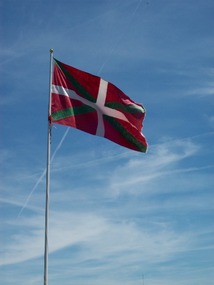


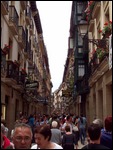
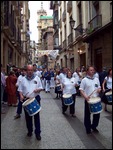
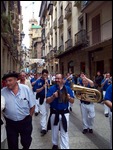
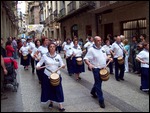
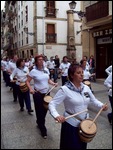
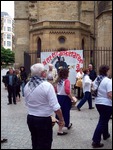
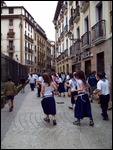
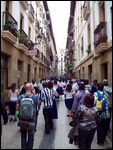
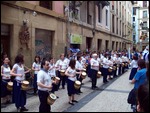
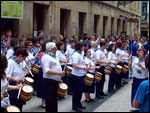
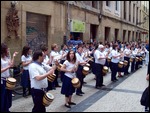
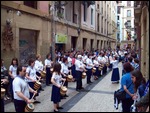
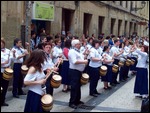
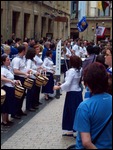
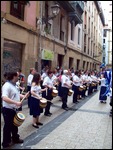
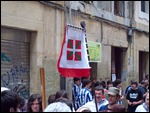
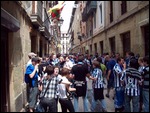
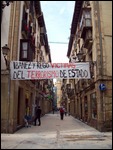
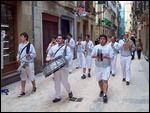
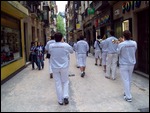
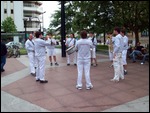
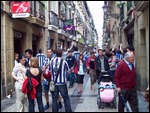
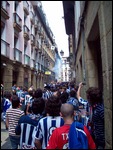
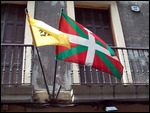
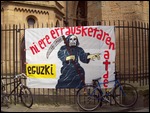
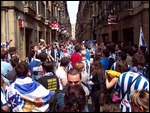
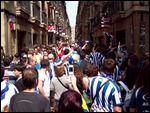
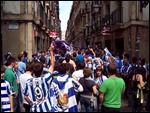
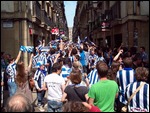
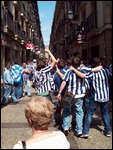
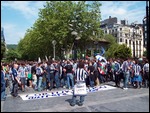
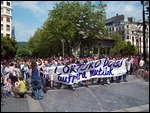
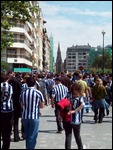
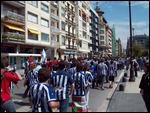
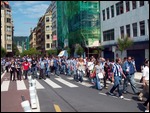
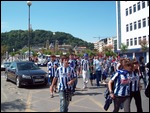
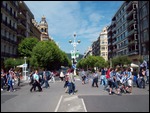
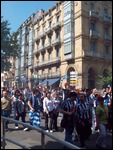
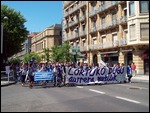
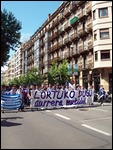
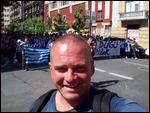
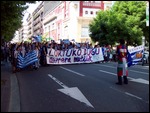
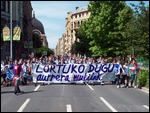
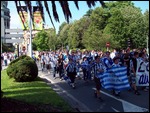
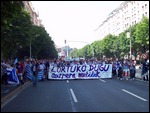
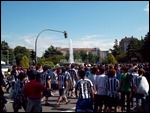
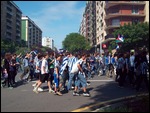
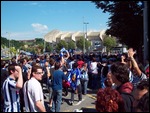
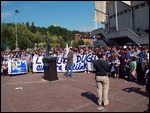
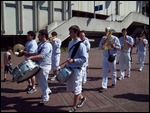
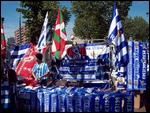
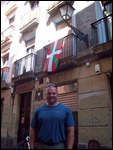
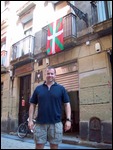
2025-05-22